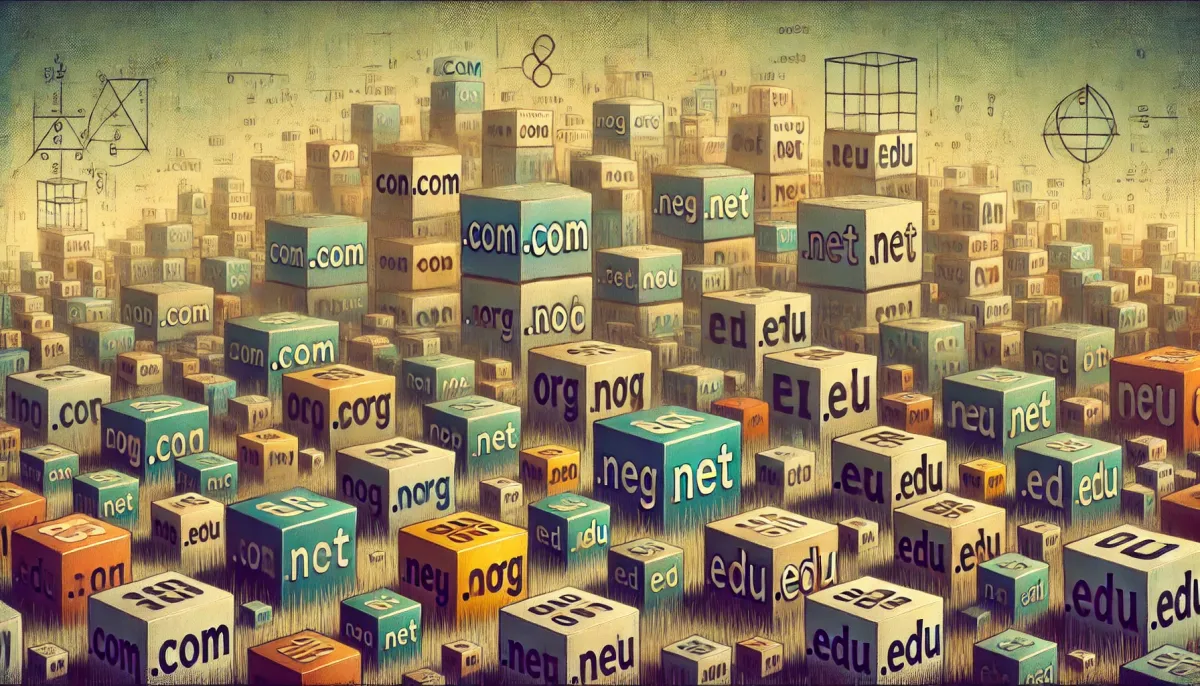The problem with Domains
Time the regulators stepped in to clean this vital part of the digital supply chain up, once and for all.

I've been buying domains now for a while - ages in fact. I'm probably a bit of a junky or collector - whichever way you look at it. I've had some corkers and some total wasters - and the investment has been significant. It's latterly become pretty obvious that the whole game is fudged. From my registrar - and in fact most i've spoken to - who doesn't really have to try and please me much - to the people that got to buy the new exciting names we're all being charged an arm-and-a-leg for. Time the regulators stepped in to clean this vital part of the digital supply chain up, once and for all.
It started when I bought a domain by accident - phoned up, expecting to be able to negotiate a refund - only to be told "internet says no." Things went downhill from there. My registrar, who I won't name for legal reasons, has since pilled on services I didn't pay for and made it about as difficult as they could to manage, cancel or edit the products I buy from them.
Not only is it a mess to manage these URLs (a bit like cloud servers - the UX is base), I often have to repeat actions and waste time making changes - simply because my host can't be arsed to code some decent UX. Is that the way the rest of us run our businesses? No - we'd be flayed alive by consumer and regulator alike. Who's keeping these people in check? I'm supposed to know - Nominet, Icann? Yeah, whatever.
It got worse when the new so-called gTLDs emerged. Great, we all thought! Another land grab - maybe I can pick up that killer URL everyone's after, or the brand name that dreams were made of. Sorry to tell you, but the game went deeper.
Before Joe & Jane Doe got their hands on a .club or .xyz, big businesses got to buy the underlying re-sale rights to these domains. Like selling freeholds before the proletariat leaseholders had a shot... A golden ceiling was created, where minimum wealth was required to even enter these auctions.
Millions down to Hundreds of thousands of dollars and pounds were laid down to secure freehold rights to .insurance, .car and other premium TLDs. Google, for example, paid $25m for .app. Go them! Yay. You, the citizen, the proletariat of the web - without the billions in the banks or credit line direct from Wall St. to pay for this MASSIVE asset and strategic advantage, didn't get to capture these opportunities.
Don't worry - you can rent awesome.app off Google, though - if they didn't reserve it for themselves to auction to the highest bidder from Silicon Valley.
You might be thinking - so what? That's life. But there's an inherent conflict of interest with regards to the impact on global competition. Great TLDs = better brands. Simpler URLs = better probability of success.
The one place we all go to "find" URLs, because no-one has created anything near its capability also owns tons of the underlying domains. And, by the way, gets to secretly rank them. Um, hello?
The opaque world of domain regulation and the very ideals of libertarianism that underpin the internet identity system, is maybe one of the great cons of the internet's so-called liberal freedoms. Whilst you could have been one of the sharpshooters to acquire amazing.insurance, store.app - or something of that ilk, you're probably paying someone else who owns the freehold of the entire domain suffix. You never got the chance to register the rights to .insurance before them - because you weren't rich enough.
I'd like to have seen a genuine land grab - where a few TLDs where lottery-owned - not auction to the highest bidders who happened to be in the right place, the right time - and have the zeroes needed to get a seat at the table.
I'd also like to see a new Global Rates system and unused domain levy used to either unlock these domains or tax the asset class for its total lack of competition. Competition is everything.
Something went fundamentally wrong when nTLDs deal was decided, though.
One of things that inspired us all about the web was that it embodied OPPORTUNITY. First to step over the frontier gets new land, new assets or resources - because they jumped first, risked a little and had the foresight. When it's only about who can afford to step over the frontier - it's not the kind of free frontier, or place of equality, we all hoped it could be. It's a greasy golden pole.
Make no mistake, it's one of the THE reasons crypto and Bitcoin is increasingly going to take hold. Right now, there's a land grab and those able to afford small forays into it are likely to make big returns in the future for early adopting. And where Bitcoin pioneers, other crypto-resource creators will follow.
Personally, I hope that access to them is just as democratic and accessible as it's been for some other assets on the web. But let's not fool ourselves that buying a killer new domain puts us in a position of future wealth and power - that deal was done without the average buyer even hearing about the table, let alone getting a seat.
If only policymakers were awake at the wheel.
